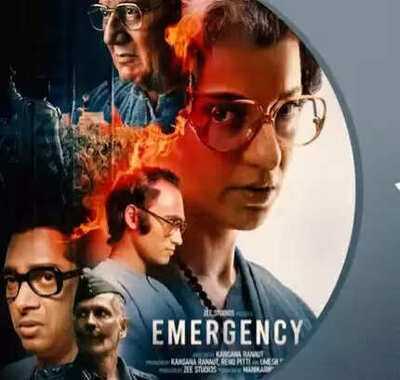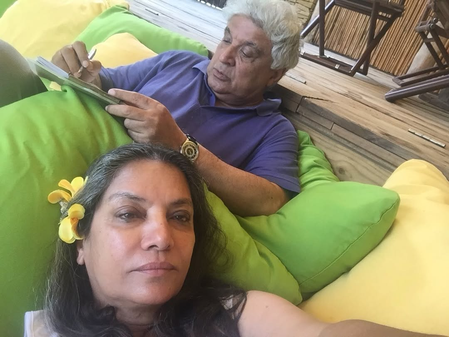
Art as a Form of Resistance
What happens when free expression is stifled? For poets, it means crafting riddles; for singers, it involves letting their melodies convey unspoken truths. During one of the most oppressive times in Indian history—the Emergency from 1975 to 1977—art transcended mere entertainment and became a form of resistance.
Amid midnight arrests and media censorship, music persisted, serving as a subtle yet powerful heartbeat of dissent. It may not have been able to shout, but it certainly found ways to communicate. Let's take a moment to reflect on this.
Gulzar: The Subtle Rebel
Gulzar's poetry often resembles a foggy mirror; while the message is obscured, it invites readers to look closer. This quality made his work quietly rebellious during the Emergency.
Consider the film Aandhi (1975), which appeared to be a simple love story. However, a deeper examination reveals parallels to then-Prime Minister Indira Gandhi in the character Aarti Devi. The film was ultimately banned for being deemed 'too political.'
Kishore Kumar's Silent Protest
Imagine a tense nation where radio broadcasts are heavily monitored, and Kishore Kumar is asked to perform at a government event. His response? A firm refusal.
This single act of defiance led to his songs being blacklisted on All-India Radio and Doordarshan for several months. Yet, did this truly prevent people from singing along to his melodies?
Kishore didn't need to produce protest songs; his music resonated with the emotional truths of the people. Tracks like Zindagi ka safar and Kuch to log kahenge encapsulated feelings of confusion and longing, making them more impactful than any overtly political anthem.
Reviving a Historic Slogan
Fast forward to 2024, the film Emergency, which focuses on Indira Gandhi's decision to impose the Emergency, brings back the iconic slogan 'Singhasan khali karo, ke Janata aati hai!' (Vacate the throne — the people are coming!). This phrase, originally from poet Ramdhari Singh Dinkar's work Janatantra Ka Janm, became a rallying cry against authoritarianism, famously used by leader Jayaprakash Narayan during his call for a total revolution.
The film's title track not only pays tribute to this historical defiance but also reignites the spirit of resistance for a new generation that may not have experienced those turbulent times but still feels their impact.
The Relevance of History in Music
Why does this resonate with today's youth?
Because history is not confined to textbooks; it lives in the melodies we hum. It exists in Gulzar's evocative metaphors, Kishore's emotional delivery, and the fervent call of Singhasan khali karo. These songs serve as time capsules, reminding us of a time when people were afraid to speak out yet found ways to express themselves.
So, the next time a line from Gulzar sends shivers down your spine or a Kishore tune tightens your throat, take a moment to reflect. What deeper messages are they conveying?
Sometimes, the most profound truths are those that are softly sung.
-
Arjuna Resort & Spa: a new luxury integrated destination in Cambodia

-
New data highlights the race to build more empathetic language models

-
Bring Kuldeep back for second Test: Manjrekar

-
Shabana Azmi posts picture with Javed Akhtar, but it’s his expression that’s going viral

-
Singapore-bound travelers among thousands stranded at one of world’s busiest airports
